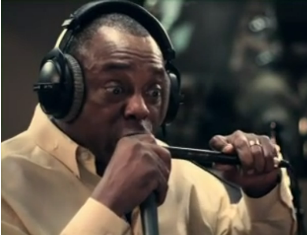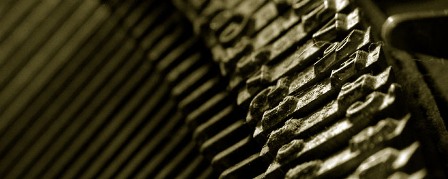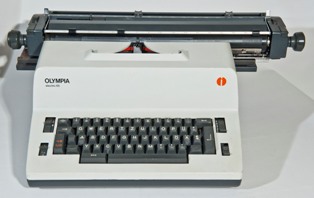They are a thing of the past, and yet, we can’t seem to let them go.
Tom Hanks recently released a typewriter app, and the clash between old and new technologies got me thinking about why we bother with the clunky machines anymore. (I gave my last typewriter, my beloved Selectric, to a typewriter repairman for parts a few months ago, after the movers destroyed it.) Here are the three main reasons why typewriters continue to seduce us:
1. Sound
To me, sound is the most obvious characteristic that sets typing machines apart. A typewriter can be heard for miles before you even see it. It is not hard to bring these sounds to mind, even if only from movie depictions: The frantic clacking of a newsroom, the disjointed pecking of a tortured author, the bell and slam of a carriage return.
I have a strange habit of finding (and enjoying) long, repetitive videos online. In the best circumstance, they can be meditative – sometimes inducing a sort of altered consciousness, and in the worst case, they can drive my family mad. Here is a short film featuring Michael Winslow (the sound effects guy from “Police Academy”). He demonstrates the sounds and evolution of the typewriter. His interaction with the microphones and the voices of the machines makes it seem as though he and the mics are interviewing the typewriters one by one.
The sound of a typewriter has been attributed as a muse for writers, as well. Thierry Guitard, writing in The New Yorker about “The Iron Whim: A Fragmented History of Typewriting,” by Darren Wershler-Henry, gives a beautiful description of the process:
“in the cool climes of the book there is one burning ember, and that is the notion that typewriters made writers feel they were being dictated to. Wershler-Henry returns to this idea again and again. He says that not only Burroughs but also Paul Auster and others felt haunted, controlled, by their typewriters. This makes sense, if only as a modern version of an ancient poetic theory. (The muse spoke to Virgil; the nightingale spoke to Keats; the typewriter spoke to us.) It may also be a species of wish-fulfillment. Most writers don’t know where their ideas come from, or whether they are any good, really. How nice, then, to imagine that they were produced by some independent agency, which, if rather spooky, seemed to know what it was doing.”
 2. Physicality
2. Physicality
Typewriters have a tangibility that is not replicated in computers. The first aspect of physicality that occurs to me is their fonts. Pages, reams, could be (and have been) written about fonts, but typewriters make them physical in a way that is only overshadowed by printing presses. My Selectric had easily changeable fonts, but the set of fonts was stored in a box in the closet, not in a dropdown menu.
On older models, before electric motors, the manual operation of the keystrokes was only one small step away from the act of scratching a pen on the paper. Today, the act of pressing a key at a computer has very little to do with the paper that comes out of the printer across the room. That leads me to permanence. Of course, later models of typewriters were self-correcting, but an entire page of typing hangs in the balance when a single typo can’t be erased.
These may all seem like flaws, rather than reasons to miss typewriters, but I think they hint at the simultaneous permanence and fragility of the written word.
3. Connection to the past
For some reason, we feel connected to technologies that we no longer use. Do we feel responsible (perhaps a little guilty) for having created something and then abandoning it even though it still functions? I think this may be the case for techies, but the nostalgia is probably simpler for others.
Perhaps for one person, there is a memory of their grandfather writing business letters on a typewriter, or another person remembers an office where the clatter of the keys never stopped. My earliest memory of typewriters in use is of the bank where my parents would take me while on errands. As the adults conducted their business, I would stand in wonder, unable to peek over the counter, and take in the stale smell of the office and the seemingly constant banging sounds of the typewriters I couldn’t see.
This connection to the past (which, in the vastness of history, is quite a recent past) is probably the strongest draw that typewriters have. What are your memories of typewriters? Leave a comment here and share the history!
Interesting links:
Here is an op/ed by Tom Hanks, published in the New York Times
Here is another long, conscience-altering video. It features hundreds of Dr. Who characters asking “What are you doing here?” It has nothing to do with typewriters, but by the end of the video you will be wondering what you are doing here…